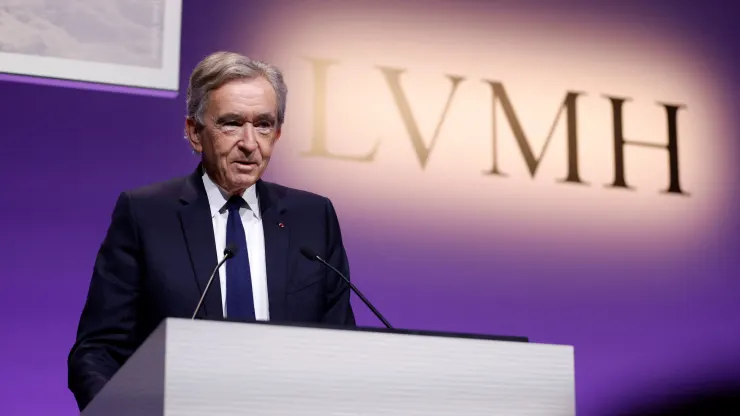
Moët Hennessy Louis Vuitton SE (OTC: LVMUY), commonly referred to as LVMH or Louis Vuitton is a French luxury conglomerate that was formed in 1987 following the merger of the renowned fashion house Louis Vuitton and the wines and spirits company Moët Hennessy.
Today, LVMH owns 75 brands in six business groups: wines and spirits, perfumes and cosmetics, fashion and leather goods, watches and jewellery, selective retailing, and other activities. The business group also owns big brands such as Givenchy, Fendi, TAG Heuer, and many others.
The company has been led by Bernard Arnault, who has been the Chairman and CEO of Louis Vuitton since 1989. He took the largest stake in the company and has led LVMH to greater heights, as they have acquired a lot in the past three decades.
The company has continued to acquire different luxury brands in different sectors. In 2022, the firm announced a net profit of €4.7 billion on revenue of €44.7 billion ($53.0 billion). On July 7, 2021, LVMH's market capitalization was $390.9 billion.
We would like to take an overview of some of the acquisitions that LVMH has made since its inception.
Tiffany & Co.
This company was founded in 1837 by Charles Lewis Tiffany and has since grown to be one of the leading global design houses for innovative jewellery design and expert craftsmanship. The firm deals with bracelets, earrings, necklaces, watches, and rings, as well as different home accessories and fragrances.LVMH announced that they were on the move to acquire Tiffany in 2019 for approximately $16.2 billion, but this move changed as Arnault had to renegotiate the acquisition due to the effects of the coronavirus pandemic that started in December 2019. He asked for an 11% reduction in the deal, which was met, followed by a lawsuit from Tiffany, who intends to ensure the implementation of the initial acquisition agreement. In the end, the two companies concluded on a purchase price of $131.50 per share, which was a 2.6% discount from the previously agreed-upon $135 per share, bringing the total purchase price to $15.8 billion.
Read more: https://www.investingport.com/bernard-arnault-and-how-he-led-lvmh-to-become-a-luxury-conglomerate/
